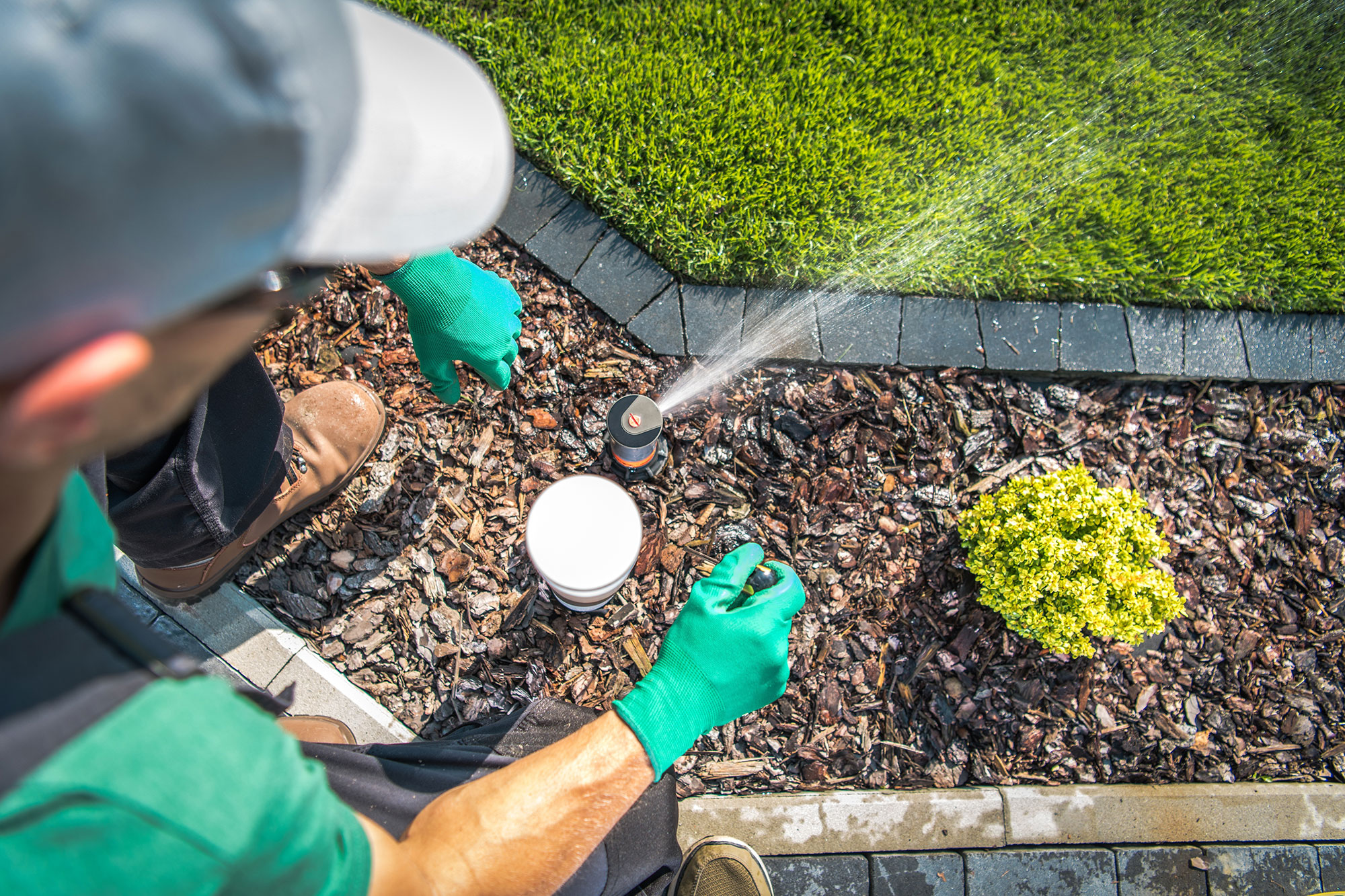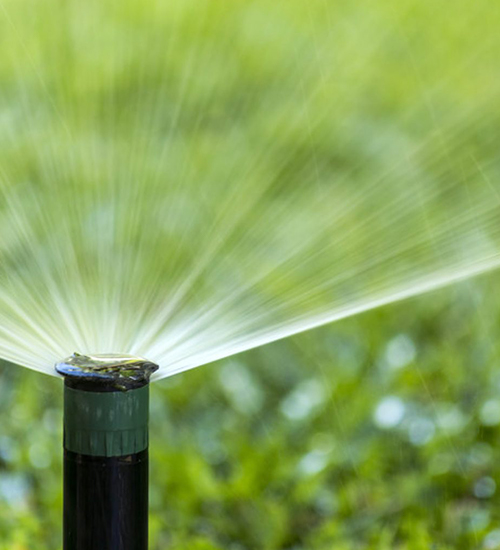
Sprinklers

Installations
It is very important that a sprinkler system be designed and installed by licensed professionals to avoid failures and provide proper irrigation. All of our sprinkler systems are designed using the latest irrigation software technology and accurate site measurements to ensure the elimination of dry spots and 100% coverage. We only use commercial grade products manufactured by Hunter and Rainbird to ensure a quality system is installed. All installations completed by Lawnscaping Plus are backed by a 3 year workmanship warranty and come with required controller, pressure vacuum breaker, and rain sensor. All components meet local codes and regulations required by the county and most importantly the Texas Commission on Environmental Quality. Call us today and let us help keep your investment green.
Lawnscaping Plus is licensed by The State of Texas (LI0018420) to install, repair, and modify sprinkler systems. We take pride in our work and will guarantee accurately designed systems to provide appropriate coverage and water preservation. We use only professional grade Rainbird and Hunter equipment to ensure a reliable system. We cover Houston, Cypress, Tomball, The Woodlands and Katy areas.
Irrigation in Texas is regulated by the Texas Commission on Environmental Quality (TCEQ), MC-178, P.O. Box 13087 Austin, Texas 78711-3087. TCEQ’s website is: www. tceq.state.tx.us.
Texas law requires that all companies offering Irrigation/Lawn Sprinkler installation and associated services must be Licensed Irrigators. With droughts behind us and looming in front of us, all sprinkler systems must be designed with water conservation in mind. Manual watering with a hose-attached sprinkler is no longer a society-accepted means of watering, mostly due to the waste water created and poor efficiency of the irrigation method itself. Automatic sprinkler systems allow water to be dispersed in small amounts over large areas, effectively feeding all vegetation while minimizing waste water and run-off amounts. The use of automatic sprinkler systems has done wonders to facilitate water conservation, but knowing proper watering patterns, watering times, and watering amounts is just as important as well. Many of these duties are best left to be performed by a professional to configure your system to accommodate your particular irrigation needs. Give us a call today to schedule an appointment with our licensed sprinkler system professionals to prepare you for the upcoming watering season; your lawn and your wallet will thank you.
Sprinkler System Repairs and Modifications
Lawnscaping Plus not only installs sprinkler systems, we can also perform regular maintenance checks and all sprinkler repairs and modifications. It is strongly recommended that the system be checked by a professional at least three seasons a year, those being Spring, Summer, and Fall. Having the sprinkler system inspected can avoid many potential future problems. Although many of us consider a sprinkler system maintenance free, this is not the case. In many instances, the system may need repair due simply to age. The most common sprinkler system repairs related to age are irrigation controllers and irrigation control valves. Other problems may be leaks, broken sprinkler heads, and malfunctioning nozzles. To have an efficient sprinkler system, it is extremely important that all components function properly and complement one another
During the warmer months of the year, it is not uncommon for us to want to get out and beautify our landscape, splurge for a pool, or even construct an outdoor living area. For those of you who have existing sprinkler systems, take note that it will have to be modified and repaired. Modifications will be necessary post-construction so that the sprinkler system can adhere to any change that may have taken place. Through our recommendation, no sprinkler piping should ever be left below any hardscape, although we’ve seen this scenario a million times and the outcome has never been beneficial. If your plans are to embark on a sizable outdoor project that may affect your sprinkler system and require repair, we strongly encourage you to contact a licensed irrigator prior to construction. Doing so will avoid additional labor costs associated with being unaware of how the system was prior to being damaged. From small repairs to large modifications, Lawnscaping Plus is licensed to tackle any irrigation project. Give us a call and we’ll get you flowing again!
Drip Irrigation
A drip irrigation system provides many benefits over a conventional system that uses traditional spray heads but most importantly it is a more conscious way to preserve our diminishing water supply. From water savings to healthier plants, drip irrigation provides solutions for efficient and effective irrigation even in the most challenging residential and commercial landscapes.
Throwing water into the air increases evaporation. Wind creates a potential for overspray and uneven distribution uniformity. Even without considering an increase in evaporation and negative uniformity associated with wind, drip irrigation is proven to be more efficient in the distribution of water than rotors or spray heads. If your existing system is utilizing traditional spray a conversion kit can be used to modify it.
Drip Irrigation Benefits
- Applies water at a very slow rate and directly to the plant root zone – gallon per hour (GPH) versus gallon per minute (GPM) – so the plant is better able to process and utilize the water producing a healthier plant with fuller blooms.
- Systems are pressure regulated and operate at lower pressures. With no pressure regulation and a much higher operating pressure, rotors/sprinklers cause evaporation, wind drift and run-off.
- Can be applied at any time of day or night without interfering with human activities.
- Watering subsurface (below the ground) reduces the susceptibility of fungal diseases for many types of plants.
- Irrigation water is not applied to impervious surfaces reducing collection and run-off.
- Easily conforms to unique and odd-shaped planters.
- Surfaces bordering the irrigated area, like glass and fences, are not stained.
- Critics highlight the slight increase in costs associated with the installation of drip irrigation system compared to conventional irrigation rotors/sprinklers. This becomes a non-factor as contractors become more familiar with drip installations.
*Water savings of using dripline in your landscape can be up to $400/year*
